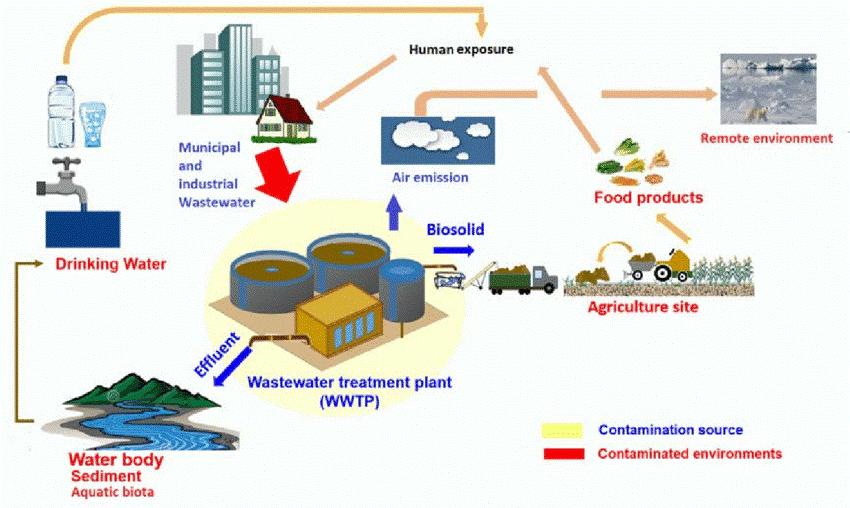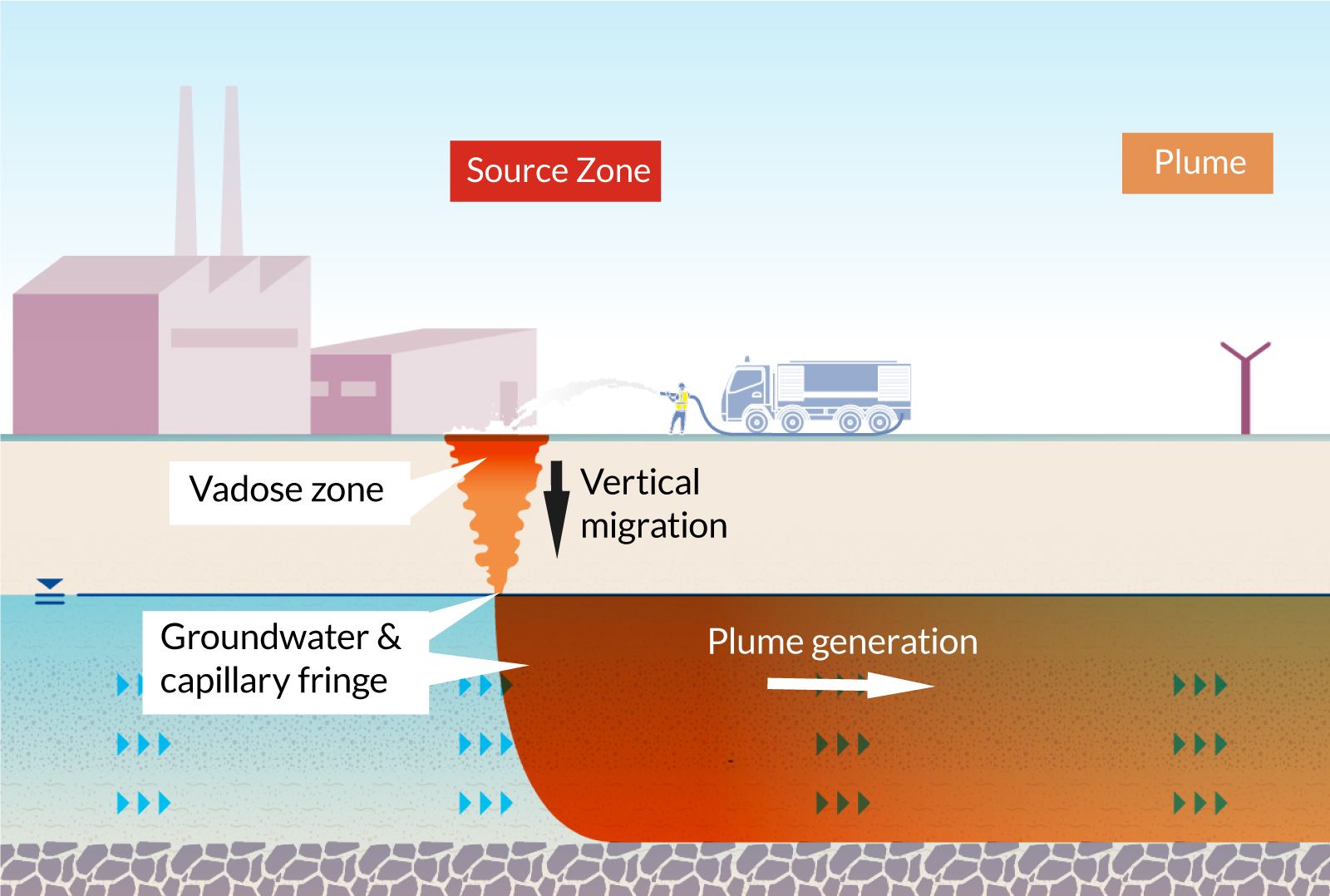The Importance of PFAS Treatment in Cleaning Polluted Water
The Importance of PFAS Treatment in Cleaning Polluted Water
Blog Article
Just How PFAS Treatment Makes Certain Clean and Lasting Water
The presence of PFAS, commonly known as "forever chemicals," poses significant obstacles to water high quality and public health and wellness. The ramifications of these treatments extend beyond immediate health advantages; they elevate essential inquiries concerning lasting water administration methods that need to be dealt with to guarantee a resilient future.

Understanding PFAS Contamination
PFAS, or per- and polyfluoroalkyl compounds, have actually become a significant environmental issue because of their prevalent frequency and perseverance in the environment. These synthetic chemicals have been utilized in different industrial applications and customer products, including non-stick kitchenware, water-proof apparel, and food product packaging, due to their unique residential properties such as water and oil resistance.
The contamination of dirt and water sources by PFAS takes place largely via commercial discharges, firefighting foam use, and seeping from garbage dumps. pfas management. When released, these substances are resistant to degradation, leading to their buildup in the setting. This persistence raises essential problems, as PFAS can travel fars away via groundwater and surface water supply, impacting alcohol consumption water materials and communities

Health Risks of PFAS
The persistence of PFAS in the environment elevates substantial wellness worries for individuals exposed to these substances. Recognized as "permanently chemicals," PFAS do not break down easily and can accumulate in bodies gradually. Research study has linked PFAS exposure to numerous negative health and wellness effects, consisting of body immune system disorder, liver damages, and boosted risk of certain cancers cells - pfas management. Significantly, studies have actually shown elevated cholesterol degrees and potential influence on reproductive and developing health, specifically in expectant people and infants.
The universality of PFAS in consumer items, such as non-stick cooking equipment, water-repellent materials, and food product packaging, further intensifies the risk of direct exposure. Drinking water polluted with PFAS is a significant issue, as these chemicals can seep into groundwater resources. Vulnerable populations, consisting of youngsters and those living near industrial websites, may deal with intense dangers as a result of their developing systems and prospective for greater direct exposure levels.
As awareness of these health dangers remains to grow, regulative firms are starting to establish guidelines for PFAS levels in alcohol consumption water. Public wellness initiatives are necessary to mitigate exposure and protect neighborhoods from the long-lasting results of these hazardous substances.

Innovative Treatment Technologies
How can we successfully tackle the obstacles positioned by PFAS contamination in water sources? Ingenious therapy innovations are becoming vital solutions in the mission for tidy water. These techniques concentrate on go to these guys the removal or damage of per- and polyfluoroalkyl materials (PFAS), which are notorious for their determination in the setting.
One appealing approach is adsorption utilizing innovative materials, such as triggered carbon and ion exchange materials. These products have shown effectiveness in recording PFAS molecules from water. One more notable modern technology is membrane filtering, which utilizes nanofiltration and reverse osmosis to different impurities at the molecular level, thus offering an obstacle versus PFAS.
In addition, progressed oxidation processes (AOPs) employ strong oxidants to break down PFAS compounds right into safe by-products. This approach is especially efficient for dealing with very contaminated water sources. Bioremediation techniques, employing particular bacteria, are likewise being discovered to weaken PFAS.
As study proceeds, crossbreed systems that incorporate numerous important source modern technologies might supply boosted efficiency, addressing the complexities of PFAS contamination. The development and execution of these cutting-edge therapy modern technologies are essential actions towards making sure the safety and security and sustainability of our water sources.
Advantages of Efficient PFAS Therapy
Efficiently treating PFAS contamination in water resources substantially enhances public wellness and ecological safety. PFAS, often referred to as "forever chemicals," are immune to deterioration and can accumulate in the body, causing major wellness dangers such as cancer cells, liver damage, and body immune system disorder. By implementing reliable therapy techniques, areas can minimize direct exposure to these dangerous substances, inevitably improving the wellness outcomes of their populaces.
Moreover, effective PFAS therapy contributes to the conservation of local ecological communities. Infected water can negatively influence water life and interfere with the delicate balance of neighborhood habitats. By making sure tidy water, treatment procedures shield biodiversity and maintain environmental honesty.
Additionally, efficient PFAS remediation can cultivate public confidence in water high quality. When areas are ensured that their drinking water is without harmful pollutants, it advertises a feeling of safety and security and well-being. This depend on is crucial for community engagement and support for ongoing water administration efforts.
Future of Water Sustainability
Amidst expanding problems concerning water quality and scarcity, the future of water sustainability hinges on ingenious techniques and joint initiatives. As areas encounter the looming threats of contaminants like PFAS, the development of advanced treatment innovations is necessary. These innovations not just concentrate on the removal of dangerous compounds yet also advertise the reuse and recycling of water, thereby decreasing overall demand.
Additionally, effective water governance plays a vital function in making sure sustainable practices. Policymakers should integrate clinical study with regulative frameworks to develop clear standards for water use and treatment. Stakeholder engagement, consisting of neighborhood neighborhoods and markets, fosters a feeling of common obligation and encourages lasting methods across numerous fields.
Investment in framework is additionally important; upgrading aging systems to incorporate modern-day filtering and purification approaches can substantially improve water quality. Embracing eco-friendly technologies, such as all-natural filtration systems, can give environment-friendly solutions.
Inevitably, the future of water sustainability lies in an all natural method that incorporates technology, plan, and community participation. By focusing on these elements, we can guard our water resources for generations to find, article ensuring clean and lasting water for all.
Conclusion
To conclude, the effective treatment of PFAS is crucial for guaranteeing tidy and lasting water. By employing sophisticated modern technologies such as activated carbon adsorption, membrane purification, and advanced oxidation processes, areas can considerably minimize the health dangers related to these contaminants. Moreover, the assimilation of these therapy methods supports ecological community defense and improves biodiversity. Inevitably, durable PFAS therapy strategies add to long-term resilience in water administration, promoting public count on water top quality and advertising lasting techniques.
Report this page